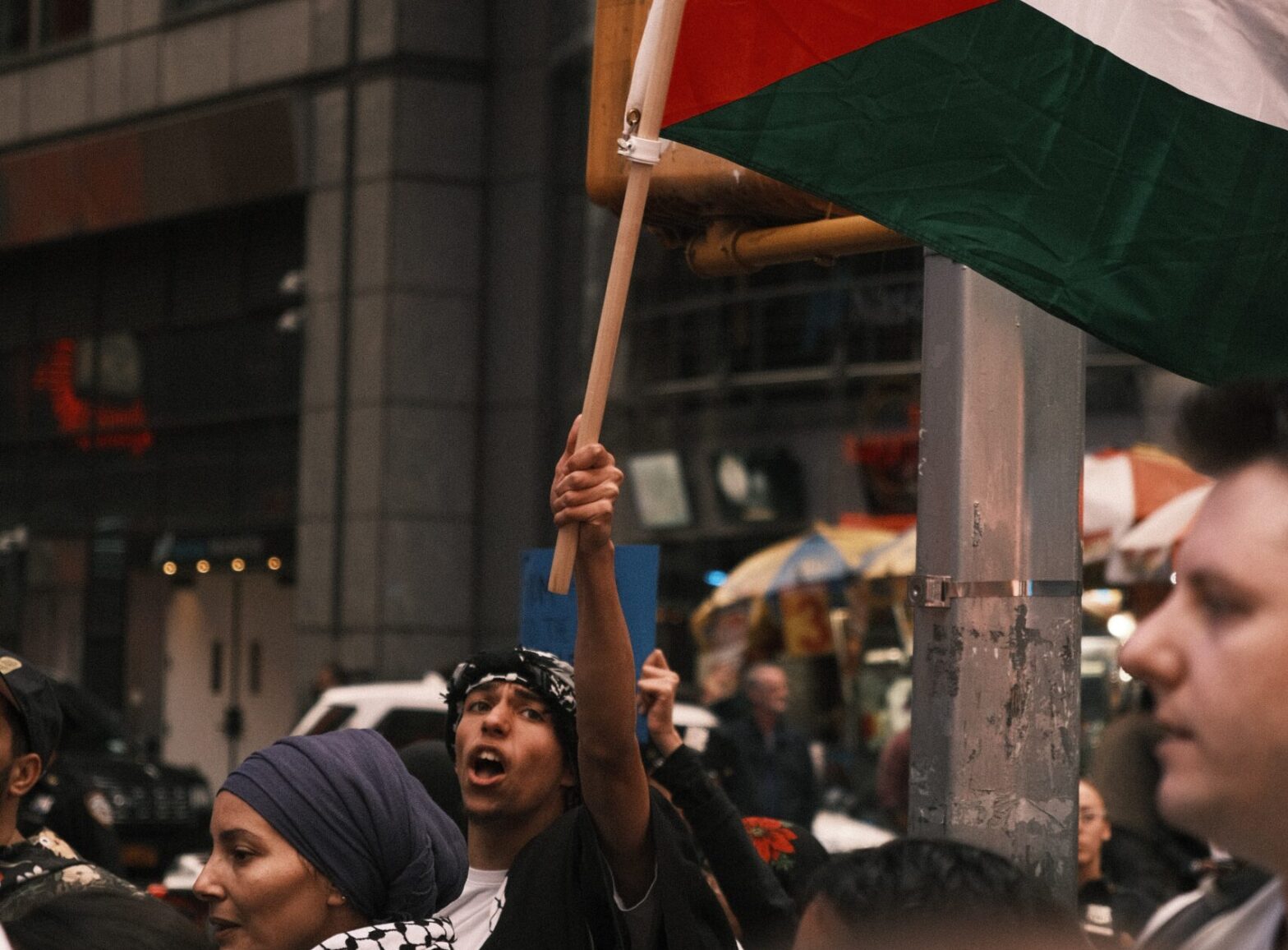As the Israel-Hamas conflict has intensified and grown more deadly in recent weeks, the pressure has been on for governments, businesses, organizations and individuals around the world to “pick a side.” Many Black Americans have been spreading awareness and participating in protests, advocating for Palestinian rights and calling for a ceasefire.
Given our history and experiences with oppression in the US, African Americans can relate and empathize with the Palestinians‘ plight. Themselves long persecuted and tyrannized, they too, sympathize with our community. Through protests, the arts, and speaking out in various arenas, Palestinians have supported the Black Lives Matter movement, condemning the racism, discrimination and inequality our people face.
However, the solidarity between African Americans and Palestinians is far from new. For decades, our communities have shown support for one another, united by parallel struggles for freedom and justice, as well as our unwavering conviction and resilience.
Historical Connections
Malcolm X was one of the earliest Black human rights activists to call attention to the Palestinian cause. He visited Palestine several times, meeting with the Palestine Liberation Organization and witnessing the reality of the apartheid system firsthand. He believed the struggles of Blacks and Palestinians were interlinked and integral to the global revolution against racism and imperialism.
The Civil Rights Movement was a major inspiration and influence for the Palestinian resistance movement. The principles of nonviolent resistance, grassroots efforts and peaceful protest were mirrored in the Palestinian struggle, particularly during the First Intifada in the late 1980s.
Stokely Carmichael, Eldridge Cleaver, Angela Davis, Huey P. Newton and other key figures in the Black Power movement voiced their support and solidarity with Palestine. The latter also met and talked with Palestine Liberation Organization leaders and freedom fighters. Likewise, the Palestine Liberation Organization spoke out against the oppression of Blacks and how the causes of both groups aligned.
Cultural Exchange
The solidarity between Palestinians and Black Americans can also be seen in cultural exchanges between both communities. While many Black activists have donned Palestinian scarves, or keffiyehs, as symbols of resistance, Palestinian activists have adopted the use of the iconic raised fist synonymous with Black Power. This shared symbolism represents the interconnectedness of our struggles and the recognition of the need to uplift marginalized voices.
Often serving as a creative means of voicing resistance and condemning social inequity, hip-hop music has also been an outlet in which Black artists like Lupe Fiasco, Mos Def, Talib Kweli and Vic Mensa use rap lyrics to discuss the Palestinian plight. Having adopted the musical style for themselves, Palestinian rappers MC Abdul and the group DAM detail injustice in the region.
Contemporary revolutionary poet Samih al-Qassim expressed his solidarity with the Black community through his poetry. After the murder of George Floyd, Palestinian artists painted murals in his honor in Gaza and the West Bank. People took to the streets in protest of the killing, holding “Black Lives Matter” signs.
Intersecting Narratives of Resistance
The solidarity between Black Americans and Palestinians signifies the power of shared struggle against oppression. Similar experiences of discrimination and resilience have created strong bonds of support and collaboration. Through shared narratives, our communities continue to amplify each other’s voices and advocate for the dismantling of oppressive systems.
As the fight for justice continues, the solidarity between African Americans and Palestinians is a reminder of the importance of collective action and the potential for global alliances to combat systemic oppression. By recognizing each other’s plights as connected, our communities foster a sense of unity that transcends borders and race, inspiring hope for a more just and equitable world.
